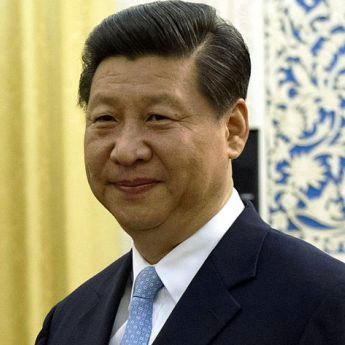By Bernt Berger*
IDN-InDepth NewsViewpoint
STOCKHOLM (IDN) – The 18th National Congress of the Chinese Communist Party officially endorsed on November 15 the members of the new Politburo Standing Committee, China’s top leadership body. Despite the secrecy, speculation and rumours in the run-up to the announcement, the make-up of China’s fifth generation of leaders was predictable. Although it reflects the outcome of protracted behind the scenes power struggles, generally speaking the result might have little impact on the government’s political directions.
Besides Party Secretary-General (and de facto president-in-waiting) Xi Jinping and Li Keqiang, who is expected to become prime minister in the official transition of power in March 2013, the five new Standing Committee members are: Zhang Dejiang, Yu Zhengsheng, Liu Yunshan, Wang Qishan and Zhang Gaoli. Two candidates said to have an inclination towards greater public participation, Li Yuanchao and Wang Yang, did not make it into the inner circle.
Prospects for reform
In the run-up to the Congress, commentators focused on the issue of Party factions, particularly the possibility that domination by the so-called Princeling faction (to which Xi belongs) or the ‘Shanghai gang’ would lead the Standing Committee to oppose major changes in China’s economic and political system and leave Xi with a lame duck government.
The problem is more complex. While there is indeed a lack of political reformers among the new leaders, let alone liberally minded political reformers, questions of ideology have little to do with the two major factions. If stalemates in the leadership limit Xi’s options, as they have for outgoing President Hu Jintao, they will not be over ideology.
The real challenge for Xi will be to assert himself inside the Party and gain allies among the numerous patronage and personal interest networks that constitute China’s de facto oligarchy, as well as the economic and security institutions that have grown strong over the past decade. Judging from experience, building up a sufficient power base will take time.
A ‘shaky pile of eggs’
In Xi’s favour, none of the other new Standing Committee members can be considered reform blockers, even if they are not actually reformists. Also, the reduced number of members (down from nine) should ease decision making. Perhaps more importantly, the entire Party is aware that, despite the economic boom times and China’s rise on the international stage, a range of domestic problems that has piled up under Hu’s government now threaten its grip on power.
The new leaders are stuck between a rock and a hard place. Necessary reforms to ensure economic stability (see box below) will bring new hardships to a population already disaffected with its leaders.
However, doing nothing will sustain current problems and inevitably lead to even greater socio-economic grievances. The Chinese public is no longer willing to accept the social and environmental consequences of rapid growth. The new leaders know that failure to bring about reform is not an option.
The response to social protest will inevitably continue to involve the overly powerful public security apparatus. The failure to replace the outgoing ‘grey eminence’ of Public Security, Zhou Yongkang, on the Standing Committee will reduce Public Security’s political influence, but could also make it harder to control the public security apparatus. Nevertheless, Zhou’s legacy – the so-called social management initiative, which sought innovative approaches to bring about social stability, including social participation – is likely to endure.
Finally, in order to maintain stability and re-establish the Party as the legitimate force to guide China’s economy into the future, fighting corruption in the Party ranks will be of paramount importance. Corruption is pervasive and in the provinces is largely outside Beijing’s control. However, corruption is a core source of discontent for the public. If the Party wants to regain trust, it will need to take genuine and visible measures.
|
A full plate: Key domestic economic challenges for China’s new leaders
|
* Bernt Berger is a Senior Researcher with the SIPRI China and Global Security Programme. This article first appeared in the SIPRI website under the headline ‘China’s new leaders – looming domestic crises, not ideologies, will steer the agenda.’ It is being republished by arrangement with SIPRI. [IDN-InDepthNews – November 17, 2012]
2012 IDN-InDepthNews | Analysis That Matters
Original: http://www.sipri.org/media/expert-comments/Berger15Nov
Photo: Xi Jinping, General Secretary of the Communist Party of China < Credit: Wikimedia Commons
Send your comment | Subscribe to IDN newsletter
Follow us on Twitter and Facebook:
http://twitter.com/InDepthNews
http://www.facebook.com/IDN.GoingDeeper

